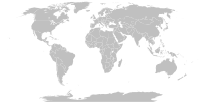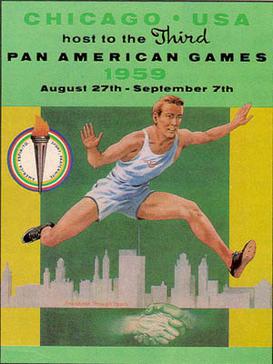
The 1959 Pan American Games, officially known as the III Pan American Games and commonly known as Chicago 1959, were held in Chicago, Illinois, United States between August 28 and September 7, 1959.

The 1963 Pan American Games, officially known as the IV Pan American Games and commonly known as São Paulo 1963, were held from April 20 to May 5, 1963, in São Paulo, Brazil.

The 1967 Pan American Games, officially known as the V Pan American Games and commonly known as Winnipeg 1967, were held in Winnipeg, Manitoba, Canada, from July 23 to August 6, 1967.
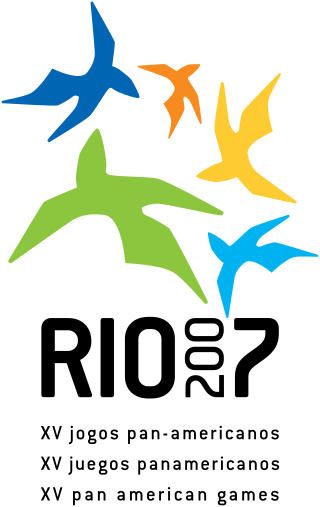
The 2007 Pan American Games, officially known as the XV Pan American Games and commonly known as Rio 2007, were a major continental multi-sport event that took place in Rio de Janeiro, Brazil, from July 13 to 29, 2007. A total of 5,633 athletes from 42 National Olympic Committees (NOCs) competed in 332 events in 34 sports and in 47 disciplines. During the Games, 95 new Pan American records were set; 2,196 medals were awarded; 1,262 doping control tests were performed and about 15,000 volunteers participated in the organization of the event, which served as an Olympic qualification occasion for 13 International Federations (IFs).

Chile is one of participating countries in the Pan American Games, the largest multi-sport event in the Americas. The Chilean Olympic Committee (COCH) is the National Olympic Committee for the country and the main organizer for its participation at the Pan American Games.

Canada has competed at every edition of the Pan American Games since the second edition of the multi-sport event in 1955. As of the last Pan American Games in 2019, Canada is third on the all time medals list, only behind the United States and Cuba. Canada is also one of nine countries to have competed at the only Winter Pan American Games, and only of one two to win a medal at the games.

Argentina has competed at every edition of the Pan American Games since the first edition of the multi-sport event in 1951, in which it hosted. Argentina competed in the first ever Pan American Winter Games in 1990; however, it failed to get medals.

The Rio de Janeiro bid for the 2007 Pan American Games was a successful campaign, first recognised by the Pan American Sports Organization (PASO) in August 2001. Rio de Janeiro began working on the idea of staging the 2007 Pan American Games during the 1999 Pan American Games held in Winnipeg, Canada. There was a strong desire among sportspersons and officials at that time to work so that the best of national sport could be showcased at home, in a large event using state-of-the-art fields-of-play. Based on this strategic vision, the Brazilian Olympic Committee (BOC) General Assembly decided in December 1999 that Brazil would not bid to host the 2008 Summer Olympics and would instead focus its efforts on the bid for the 2007 Pan American Games. The important results obtained by the Brazilian delegation at the Winnipeg Games and the wide publicity for the event in Brazil encouraged sports authorities to definitely support the Rio de Janeiro bid to host the 2007 Pan American Games.

Antigua and Barbuda has competed at every edition of the Pan American Games since the eighth edition of the multi-sport event in 1979. However, Antigua and Barbuda participated in the 1959 Pan American Games as part of the British West Indies and future Prime Minister Lester Bird won a bronze medal in the long jump. Sprinter Heather Samuel won Antigua and Barbuda's first Pan Am medal in 1995, a bronze in the women's 100 metres. Sprinter, Brendan Christian won Antigua and Barbuda's first gold medal at the 2007 Pan American Games. To date, all five of Antigua and Barbuda's medals have been won in the sport of track and field. Antigua and Barbuda did not compete at the first and only Pan American Winter Games in 1990.

The Bahamas has competed at every edition of the Pan American Games since the second edition of the multi-sport event in 1955. Bahamas did not compete at the first and only Pan American Winter Games in 1990.
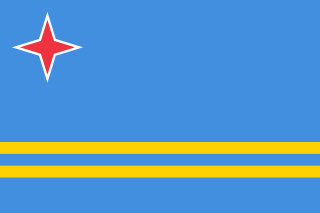
Aruba has competed at every edition of the Pan American Games since the tenth edition of the multi-sport event in 1987. Aruba did not compete at the first and only Pan American Winter Games in 1990.

The British Virgin Islands has competed at every edition of the Pan American Games since the ninth edition of the multi-sport event in 1983. The British Virgin Islands did not compete at the first and only Pan American Winter Games in 1990.

The Cayman Islands has competed at every edition of the Pan American Games since the ninth edition of the multi-sport event in 1987. The Cayman Islands did not compete at the first and only Pan American Winter Games in 1990.

The Netherlands Antilles competed at every edition of the Pan American Games from the second edition of the multi-sport event in 1955 until the 2011 games. Netherlands Antilles did not compete at the only Winter Pan American Games. 2011 marked the last appearance for the country, albeit under the Pan American Sports Organization flag. Since 2015, Curaçaoan and St. Maartener athletes have been eligible to represent Aruba.

The 1963 Pan American Games, officially known as the IV Pan American Games, was a continental multi-sport event held in São Paulo, Brazil, from April 20 to May 5, 1963. At the Games, 1,665 athletes selected from 22 National Olympic Committees (NOCs) participated in events in 19 sports. Eighteen nations earned medals during the competition and eleven won at least one gold. Barbados, debuting at the Pan American Games, won its first medals, while British Guiana won its first ever gold medal. Colombia, Costa Rica, the Dominican Republic, Haiti, Nicaragua and Paraguay did not send athletes to São Paulo, making it the Games with the lowest number of competitors in history.

The 2007 Parapan American Games, officially the III Parapan American Games, were a major international multi-sport event for athletes with disabilities, celebrated in the tradition of the Parapan American Games as governed by the Americas Paralympic Committee, held from August 12 to 19, 2007 in Rio de Janeiro, Brazil. Organized by the Rio de Janeiro Organizing Committee and the Brazilian Paralympic Committee (CPB), it marked the first time that the Parapan American Games were staged in the same city and followed directly after the Pan American Games.

The 2027 Pan American Games, officially the XX Pan American Games and commonly known as Lima 2027, is an upcoming international multi-sport event governed by the Panam Sports Organization. It will be held for the second time in Peru's capital, Lima.

Two cities submitted bids to host the 2007 Pan American Games that were recognized by the Pan American Sports Organization. PASO selected Rio de Janeiro, Brazil over San Antonio, United States as the host for 15th Pan American Games on August 24, 2002, at its general assembly held in Mexico City, Mexico by a vote of 30 to 21.
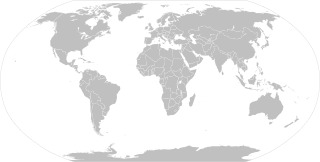
Three cities submitted bids to host the 1967 Pan American Games that were recognized by the Pan American Sports Organization (PASO). On April 22, 1963, Winnipeg was selected over Caracas and Santiago to host the V Pan American Games by the PASO at its general assembly in Sao Paulo, Brazil.

For the first time, two cities submitted bids to host the 1963 Pan American Games that were recognized by the Pan American Sports Organization (PASO). On August 25, 1959, São Paulo was selected over Winnipeg to host the IV Pan American Games by the PASO at the VII Pan American Sports Congress in Chicago, United States.
